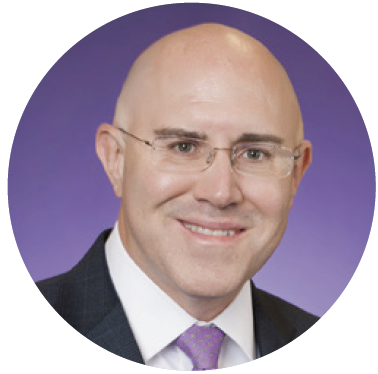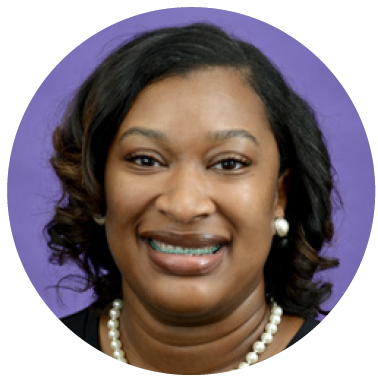Faculty Roundtable: Graduate Student Advice
From across disciplines, faculty discuss what they wish they had known about being a successful graduate student.

Illustration by Getty Images | GOVINDANMARUDHAI
Faculty Roundtable: Graduate Student Advice
From across disciplines, faculty discuss what they wish they had known about being a successful graduate student.
 Ron Pitcock
Ron Pitcock
Interim Dean and J. Vaughn and Evelyne H. Wilson Honors Fellow
I wish someone had emphasized that graduate school is more of an endurance race than a brilliance test, that the most important lessons evolved from being wrong, that intellectual risks gave a larger return on investment than playing it safe and that I would need to set aside substantial funds — for a ’90s graduate student’s budget — to purchase bookshelves and floppy disks.
 Omar Harvey
Omar Harvey
Associate Professor of Geology
College of Science & Engineering
I can think of three main things — within my control — that made my graduate school experience successful. These are also the same things that I would strongly encourage graduate students to consciously pursue.
1. Be deliberate in cultivating a thought process and work ethic that stands out. Creativity and execution are two of the most highly valued traits in any profession and come only through out-of-the-box thinking combined with sheer gusto and hard work.
2. Actively cultivate professional relationships with faculty advisers and mentors who push you to be at your best and are willing to share their experiences on career pitfalls and how to navigate them. During my PhD I had a miniature army of faculty advisers and mentors — up to seven at any one time — across several academic disciplines. I was all too aware that, as a minority with a strong personality, my career goals would take me into territories with structures that frankly were not designed to include me. I realized I would need allies, well-respected allies who knew me beyond the obvious of GPA and publications and would vouch for me.
3. Have a plan with clear targets, timelines and strategies to adjust, just in case. It is true that a failure to plan is a plan to fail. To be bluntly honest, graduate school is not where you should come to develop a plan. It is where you should come to execute a plan.
 Shannon Younger
Shannon Younger
Assistant Professor of Management and Leadership
I wish I had known that graduate school is a mental game played against oneself, and no one else knows what they’re doing either!
Grad school is often a time when it’s tempting to compare — my work isn’t good enough; I’m not working hard enough; what I turned in is terrible; I’m never going to get a job. But fighting through the inner turmoil made me better: more efficient, more resilient, more well-rounded, more disciplined and more compassionate.
 Tahir Ali
Tahir Ali
Assistant Professor of Otolaryngology
TCU and UNTHSC School of Medicine
I wish I had known that what I was studying was not like in my previous classes. What I was studying was what I would be doing for the rest of my life. Had I known this, I would have taken advantage of more learning opportunities that have not been as easily available after leaving school.
 Sh’Niqua Alford
Sh’Niqua Alford
Assistant Professor of Professional Practice and Director of the Bachelor of Social Work program
Harris College of Nursing & Health Sciences
I was a parent of a young child and somehow worked a full-time job and a part-time job while in school. I wish I would have known that success was already achieved just by overcoming obstacles and persevering to accomplish my academic and career goals. Earning a graduate degree is more than earning an A on an exam or paper. It is about growing within your chosen profession, establishing a foundation in self-care, and developing organization and time management skills to aid you in successful management of a future career.
 Jennifer Smith
Jennifer Smith
Assistant Professor of Professional Practice
Each person has unique considerations, depending on their individual situations, that are important to their success. Time management is extremely important. I had two young daughters while I was working on my PhD, and time management was different than when I was an undergraduate. It was important for me to balance my family with my graduate work and deadlines. Another important component was having a group of graduate students in my program with whom to collaborate and attend conferences and to share the unique challenges of the graduate school experience.
 Joddy Murray
Joddy Murray
Professor of Rhetoric and New Media
AddRan College of Liberal Arts
1. Use your mentors. If you don’t have mentors, pick a faculty member or advanced graduate student and ask them for advice. Later, when you are able, you can be a mentor to newer graduate students.
2. Take care of your body and your mind. Do what you need to do to keep healthy and fulfilled.
3. Express gratitude. Everybody you know, from your family to your friends to your faculty, contributes to your success, so thank them often.
4. Take initiative. Take charge of your successful completion of the program. Set goals on a calendar and subgoals that will get you to the goals. Know the graduation timeline and have contingency plans if you miss a deadline.
 Babette Bohn
Babette Bohn
Professor of Art History and Graduate Coordinator
I wish I had known two things as a graduate student that may sound somewhat contradictory. First, time management may be the most important skill in life — and in graduate school. And second, be sure to take time out from work to engage in activities that nourish and inspire you.
 Amina Zarrugh
Amina Zarrugh
Assistant Professor of Sociology and Women and Gender Studies Affiliate Professor
AddRan College of Liberal Arts and School of Interdisciplinary Studies
In the course of my graduate study, I learned that being a successful graduate student takes many forms and should not be defined narrowly. In graduate school, you are socialized by faculty and administrators over the course of six or seven (or more) years to believe that your success and self-worth should be defined in terms of authoring publications and acquiring a prestigious faculty position. This definition of success, while it seems admirable, can be paralyzing to those of us who have a broader conception of what constitutes success or meaningful work. From my perspective, the pursuit of prestige is hollow and often entails diminishing the work and value of those people, institutions and work not deemed prestigious enough.
 Jaime Loke
Jaime Loke
Associate Professor of Journalism
Bob Schieffer College of Communication
During the first day of graduate school, I looked around my 9 a.m. class and was completely intimidated by others who seemed so much more brilliant and so much more at ease in what felt like such an overwhelming setting. I was a young master’s student in a roomful of doctoral students who were exchanging academic jargon that was foreign to me. I guess if I could go back and tell myself one thing, it would be that I had just as much to offer as anyone else who was sitting in that room. Thankfully, I had rock star professors who made me feel like a valued part of their community and allowed me a space for my voice.
I went on to have an extremely rewarding experience in graduate school. In just a few short years, I grew and matured as a scholar and an individual. My years of graduate school shaped me to become the person I am today, and for that I will always be thankful.

Your comments are welcome
Comments
Related reading:
Research + Discovery
Floyd Wormley Jr. Leads Research and Graduate Studies
The associate provost, dean and professor works to perfect the teacher-scholar model and help faculty learn to market their research.
Features, Research + Discovery
TCU’s Graduate Students Explore New Topics Through Research
These students are improving the world by reaching beyond the boundaries of knowledge.
Features
Did you Fail? 7 Frogs Find Meaning in Life’s Wrong Turns
On the path to success, falling doesn’t mean you can’t fly.